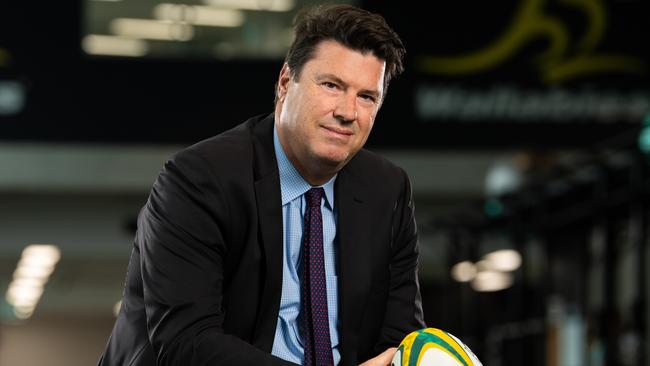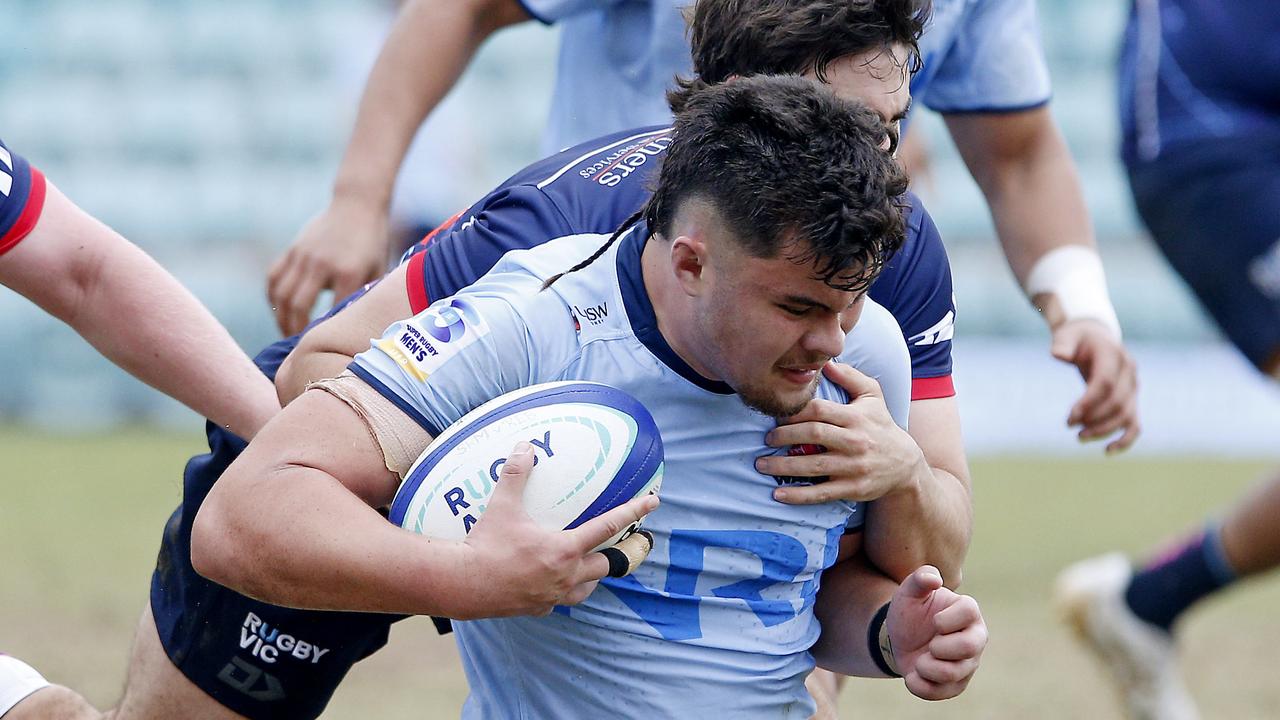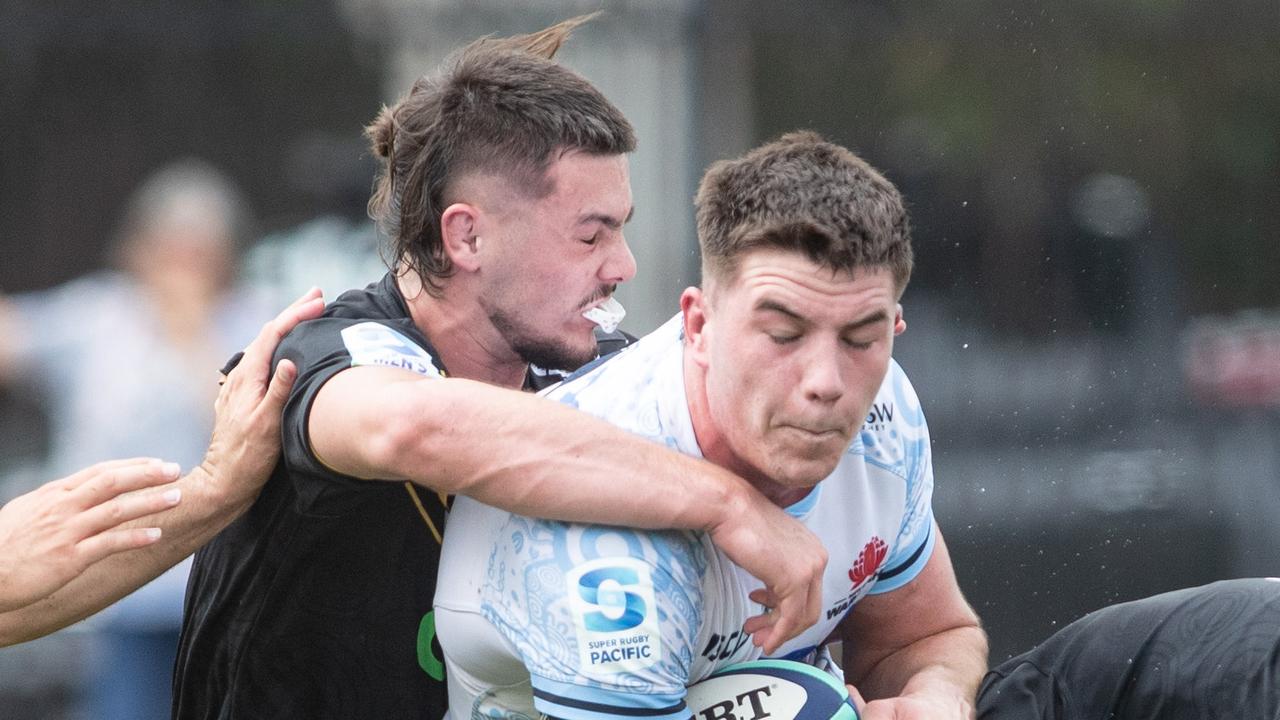
Since Hamish McLennan took control of Australian rugby, that’s one thing we have not heard.
What does he stand for and what is his “vision thing”, in relation to the game we love.
As Rugby Australia appears set to sell off part of our game to private equity, it’s clearly time to ask some searching questions.
Here are 10 that I think Rugby Australia should answer before we allow our game to be taken down a potentially treacherous path.
One: How exactly did Rugby Australia squander the $45 million war chest set aside after the last World Cup staged in our country?
It’s clear the money was never spent on grassroots rugby. Was this war chest spent on ever expanding player salaries, bureaucracies and administrators making a big quid living off our game? Have we learnt that lesson?
Two: How have we ended up with the current debt of $30 million?
The chairman claims the current debt problems are all down to a virus and its impact on revenue; but the game was in poor shape financially well before coronavirus became a factor.
How much have we lost from the bungled broadcast negotiations with Fox Sports, the mismanaged Israel Folau fiasco and the failed appointment of Raelene Castle?
Three: Why did the game knock back the $50 million offered by Andrew Forrest when the Western Force were heartlessly abandoned by Rugby Australia?
We were told the rationale for cutting the Force was because the game was in financial trouble and we were left to assume that Rugby Australia wouldn’t take Forrest’s money because there would be “strings attached”.
It’s ironic that Rugby Australia, who once snubbed Forrest and his money, may soon accept him as a private equity partner.
Four: Why would we sell off our game to private equity investors when we know their only interest is in their return on investment?
When the private equity group CVC got involved with Formula One, they walked away with eight times what they originally invested in the sport.
Private equity investors have one aim and that is to make money for their shareholders.
Rugby’s main asset and major source of revenue is its $30 million broadcast rights deal.
In the past five years, global broadcast rights have doubled in sport; sport now accounts for 40 per cent of all entertainment content.
Private equity want to buy in now and ride the growth on the next broadcast cycle.
Five.: What exactly do we need the money from private equity for?
McLennan has not told us. In the past, whenever there has been a cash injection into rugby, our administrators have, to use the phrase made famous by Bill Pulver, “pissed it up against the wall”.
Six.: What percentage of the game are we prepared to sell to private investment and when will it end?
In Formula One, CVC started with a share of around 20 per cent, but over a five-year period, they took complete control with more than 50 per cent of the sport. When they exited the sport, they took out $8 billion, eight times what they originally invested.
At some point, private equity may have a controlling share of our game. Do we want that?
Seven: What is the big picture that McLennan sees for our sport?
Coronavirus has been a catalyst for some good things in our game. Super Rugby AU is a triumph; but surely the plan is not to revert to the old Super Rugby format, with games played outside our time zone against opposition teams of whom we have little or no idea where they are based.
The past version of Super Rugby is the main reason we are in financial trouble. It’s too expensive to play international provincial tournaments.
Eight: Why do we need to sell off our game to private equity when money is cheap to borrow?
Surely if we are in debt to the tune of $30 million, we can cut costs and take out a low-interest loan to service the debt. If Rugby Australia refinanced the $30 million, it would cost a relatively affordable repayment to service that debt. Short term debt is not a problem if you are confident of a bright future for our game.
Nine: Who decides if Rugby Australia takes on a private equity partner?
No doubt, McLennan inherited the consequences of previous poor governance at Rugby Australia. But if they didn’t get it right, McLennan must prove he can.
The problem is, under the current governance model, the chairman has all the power; he can essentially pick his own board and executive.
That’s fine if those calling the shots have runs on the board. That is plainly not the case. The truth is, we are in desperate need of constitutional reform.
The corporate model we currently have denies the rugby public any influence and, as a consequence, engagement with our support base is generally poor.
If we give supporters some skin in the game, they will attend more games and watch more games.
Ten: If we know we need constitutional reform, why don’t we sort that out first before selling off part of the family farm?
McLennan agrees the current governance model is not working. If that’s the case, let’s deal with that issue as a matter of urgency.
Barcelona are the most famous football team in the world. They have won more trophies than anybody else and they are easily the most successful sporting organisation on the planet.
Their governance model sees Barca members vote every four years to elect their chairman. The members are the fans. They are engaged in the future of their organisation and pay a membership fee of $350 a year to have a say in how things are done.
The total revenue from Barca membership is $40 million a year, which is poured back into their world-renowned youth academy.
We could adopt this truly democratic governance model and it would revolutionise the game in Australia.
The questions raised here are simple and straightforward. I think rugby should address them before we blindly sell our game to private equity.
Rugby Australia would have you believe there is no alternative; we know that’s not true. There are plenty of things Rugby Australia could do to improve our game that don’t involve selling our souls.
Someone has to offer a coherent statement about the future of rugby and that needs to be done now. We are ready for the “vision thing”.




Before the 1988 US presidential election, George H.W. Bush referred to the “vision thing”. He was acknowledging the fact that, before people would support him, he needed to tell them what he stood for.